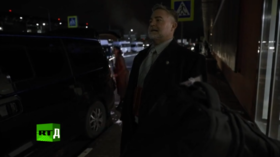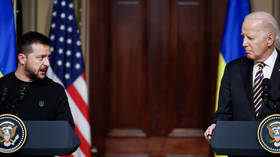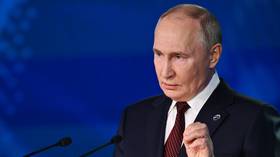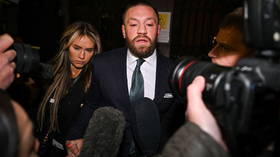Australia's sense of 'losing whiteness' projected onto Muslims
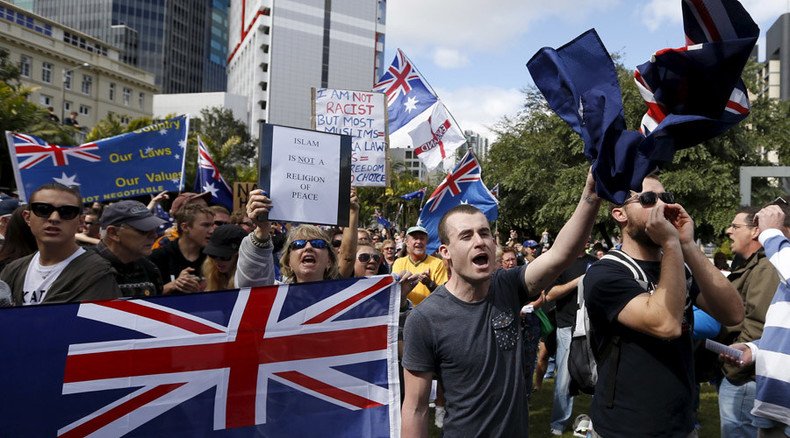
There is a loss of the sense of what it means to be Australian, says Yassir Morsi, from the University of South Australia. Groups like Reclaim Australia tie it to being white through historical references, he added.
Pro and anti-nationalists rallies were held across Australia this weekend. Protesters from the Reclaim Australia group are calling for an end to the ‘Islamization’ of the country. While their opponents from the 'No room for Racism' movement defended the Muslim minority.
RT: Some time ago Australian Prime Minister Tony Abbott said: “I’ve often heard Western leaders describe Islam as a ‘religion of peace’. I wish more Muslim leaders would say that more often, and mean it.” Do you think it's true that Australian Muslims could be doing more to improve the way people view their religion?
Yassir Morsi: I think Muslim leaders have had a long, sustained criticism of Islamic radicalization for as long as I can remember; there has been condemnation continually of all groups. I think the prime minister’s rhetoric came at a moment of his own troubles in domestic politics. It’s simply not factually correct, not even close to say that Muslim leaders don’t mean their condemnation.
As far as the question goes about them doing enough - well, they’ve done plenty. The problem is a broad one, and it’s a problem that needs to be shared by multiple institutions and communities within Australia. And far as I know, Muslims held up their hand in both goodwill and good spirit to try and fight all forms of radicalization - from the white supremacy side and from their own community. So I disagree completely with the prime minister. But then again it was more a movement of political rhetoric for his own benefit.
RT: You wrote in a recent article that Reclaim Australia is really about reclaiming "whiteness". So is this really all about race,not religion?
YM: By white what we mean here is the sense of privilege, a global... multicultural world, and an ever-changing set of boundaries, and so forth. There is a sense by some people in Reclaim Australia that their privilege of being the face of the country, of material privilege that has come previously simply by rationalize structures, has been eroded. I don’t mean skin color, I don’t mean race; it’s everyday term in race theory - we’re talking about sense of ownership.
When we consider the statistics, Muslims make up – and I’m being generous here – three percent of the population. There’s no significant call for Sharia; there is no overtaking of any aspect of Australian cultural life; they are a marginalized, politically contested community. So we have to wonder what are the grievances. I think it is easier to find a scapegoat. Inevitably what is happening here is there is a loss of sense as to what it means to be Australian, because they tie it to being white through historical references, and in a global, multicultural changing world that’s that loss and it is just being projected onto the Muslim figure.
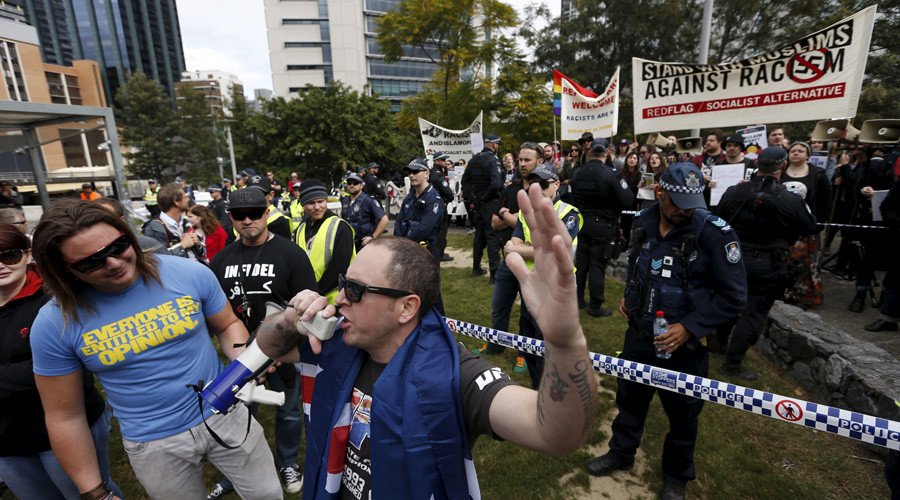
RT: How broad is this movement, and how much influence does it have?
YM: It’s hard to tell. In one level it’s quite small, mostly local people. But it has lots of support from various different politicians in parliament. There’s a lot of concern about Islam, Islamic radicals, extremism, and so forth. And this has been going for the last 10-15 years ever since September 11, and especially since London ... I cannot recall a week where the newspapers have not talked about the “threat of Islam.” But the number of Australians calling for an outright ban on Islam is a significant minority. The vast majority of Australians do not speak about the problem that way.
RT: Queensland MP George Christensen has said he will attend a Reclaim Australia rally on Sunday, and give a speech. Some lawmakers are saying he should be banned from attending. But surely he has the right to express his views?
YM: I guess that is a question of right- he has right to support everything he wants, and how the country responds. I think it’s easy, it’s a political habit of using Muslims, because, as I said, there is a is a growing sentiment and concern, not just in Australia, but in most liberal western countries about minorities and immigrants, and diaspora communities, especially when they are Muslim. It is easy to come out there and gain votes, and speak hard, and cut through “political correctness”, and act like ambassadors in defense of the country. They get you votes, that gets you support. He may have personal views about what Australia is, and he has a right to express them. But it does become disappointing when they’re flogging that horse again. It’ll be interesting to see how other members of parliament respond, and how Australian media and public intellectuals will respond. It’s disappointing, but of course he has the right.
READ MORE: Sydney ‘Reclaim Australia’ rally: ‘Spartans’ among protesters, ends in scuffles & arrests
Jaimi Houison, from Reclaim Australia movement also shared her opinion with RT.
RT: So what exactly are you trying to reclaim? Has anything been lost?
Jaimi Houison: We’re trying to reclaim equality at law. Quite recently, there have been several cases where pedophiles of Muslim cultural background have been let off because of their cultural differences. We find that this isn’t right, and that it is basically not our law
RT: The Reclaim Australia agenda is quite aggressive. On the website it says you are ready to get rid of everything Islamic in the country. Is that more of an inflammatory comment than anything?
JH: We don’t want to get rid of everything Islamic, we just want of get rid of the radicalization that is being brought over... we want everyone who comes to Australia to integrate and not make their own laws and everything like that. We want them to come here and accept Australia for what it is.
RT: What can you tell us about the human rights in Australia?
JH: We feel that our rights have been taken away from us, and we’re trying to reclaim our freedom of speech which - as was shown at our rallies yesterday and [the day before yesterday] - many people don’t want us to have our freedom of speech.
There are quite a few people who are trying to take away our freedom of speech, the government does. When we’re trying to speak up about radical Islam we get shut down and called racists, we get called bigots.
RT: What do you think Australian Muslims could do to improve the way some people view their community?
JH: We feel that Muslims, if they spoke out about atrocities that ISIS do, condemn them, and say: “this is not what we believe in,” then most people will not blame them. But most people don’t blame them at all. We do believe that not all Muslims are bad.
The statements, views and opinions expressed in this column are solely those of the author and do not necessarily represent those of RT.
The statements, views and opinions expressed in this column are solely those of the author and do not necessarily represent those of RT.





